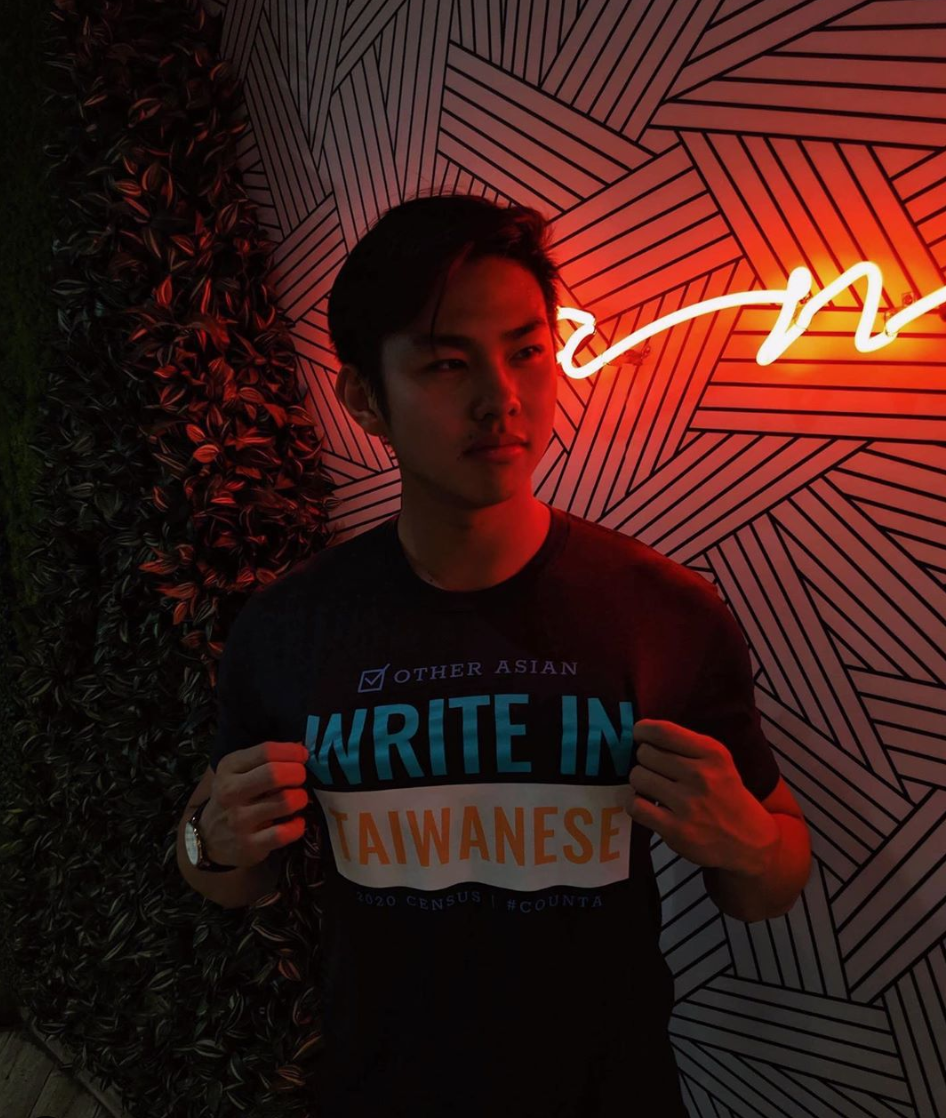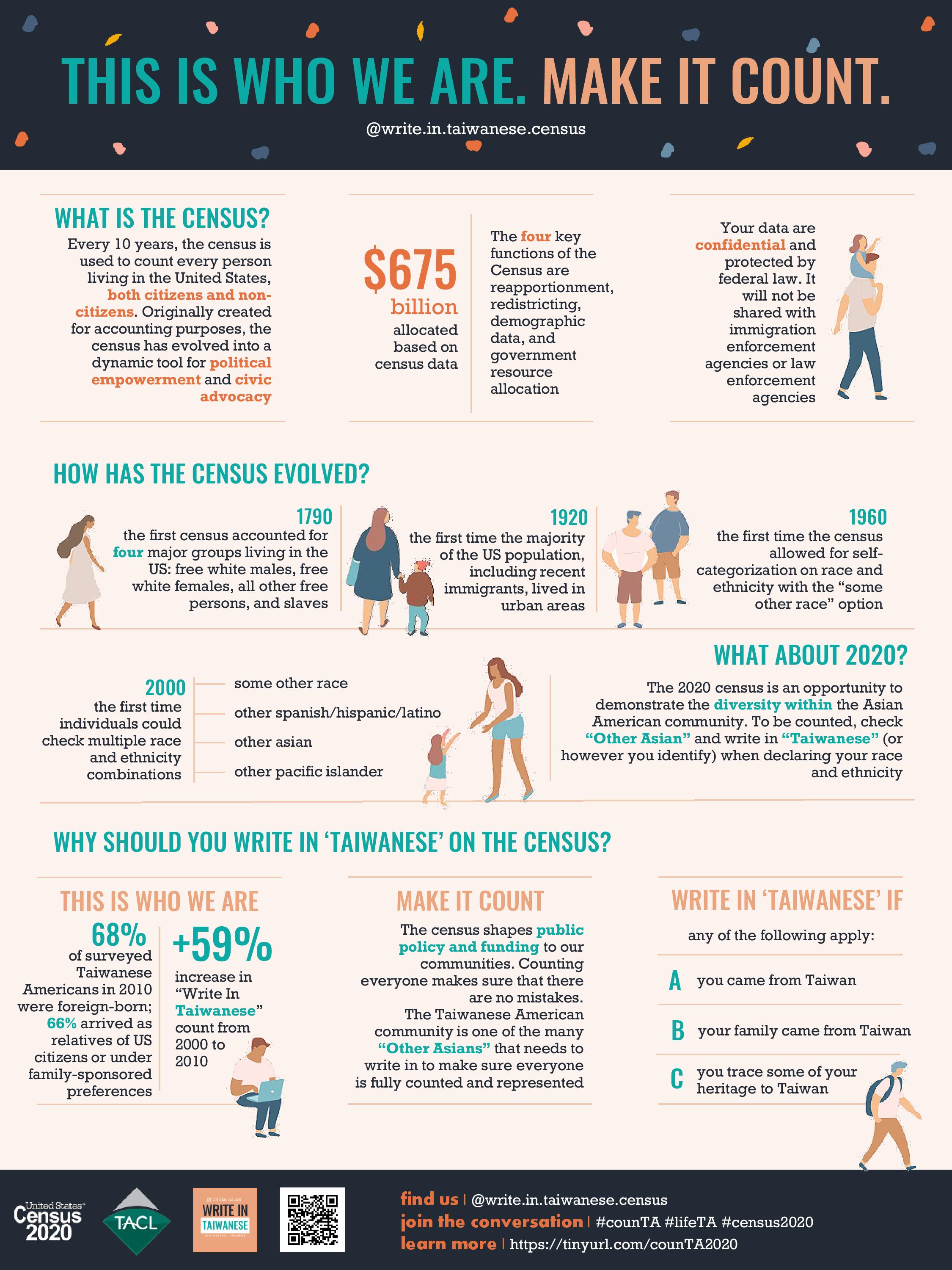LAST UPDATED: JANUARY 12, 2020
The OFTaiwan Award, co-sponsored by TaiwaneseAmerican.org and the Intercollegiate Taiwanese American Student Association (ITASA) awards student organizations that host programming about Taiwanese heritage, culture, and identity. Recipient organizations will be selected based on their events’ and program’s impact, content, and engagement with attendees.
All high school and college student organizations planning events and programs about Taiwan or Taiwanese Americans are eligible. The organization does not have to be a Taiwanese American student group (for example, a global health student group discussing healthcare in Taiwan would qualify). Programs must be hosted by a student organization, but can occur on or off campus, free or ticketed, and open or closed to the public.
In the application process, please discuss how your organization has and will help diasporic Taiwanese and/or your local community learn more about Taiwan. Examples of meaningful programs are documentary screenings and discussions, panels and forums, and identity-building workshops.
For the inaugural year, we will be awarding up to five organizations in the following denominations:
| Award | Number of recipients |
| $500 | 1 |
| $300 | 1 |
| $100 | 3 |
Dates & Deadlines
- Submissions will open from January 13 to January 31, 2020.
- Winner will be announced on February 8 during the ITASA East Coast Conference at the University of Maryland – College Park. Organizations do not have to attend the ITASA conference in order to apply.
- All applicants will be notified of results by email on February 8, regardless of whether they are ultimately selected.
Judgement Criteria
Content: Meaningful introduction of credible, cited information about Taiwan’s culture, history, geography, or identity. Ability to foster productive dialogue and empower students to walk away with a richer understanding of Taiwan
Impact: Quantitative and qualitative impact on the community (number of attendees, depth of experience, etc.). Ability to sustain interest of new members or significant development of existing members
Engagement: Creativity, uniqueness, and originality of program; level of effort by host organizations
Panel of Judges
TaiwaneseAmerican.org Board of Directors member
TaiwaneseAmerican.org Editor in Chief
OFTaiwan representative
ITASA Board of Directors member
ITASA National Board President
Application
The application for this grant can be found here. Please note that the event does not have to be completed at the time of application submission, but the grant is not awarded until after the event has been executed, contingent upon documentation and write-up. The following information is required:
- Basic Information
- Application form about school, organization name, and detailed information for logistical purposes.
- Statement of Interest (800 words or fewer)
- Statement documenting the organization’s event (or event proposal) and how it has fostered meaningful engagement among students with Taiwanese heritage, history, and/or identity. Strong statements will include learnings from the organization’s leadership and/or takeaways from members.
- Relevant Media
- Up to 10 relevant pieces of media in the form of photos, video, or material slides. Submission of media by the organization indicates permission for TaiwaneseAmerican.org to publish on their website and social media platforms in perpetuity.
Contact
Please contact Eric Tsai, Program Director oftaiwan@taiwaneseamerican.org
FAQ
What event can we use to apply?
Events hosted during or planned for the current school year (2019-2020) are eligible. Past events require documentation (photos and a writeup of impact). Planned events require a proposal and will be awarded after the documentation is provided following their execution. There is no preference for past or planned events, but proposals must be realistic and the expectation is that they will be executed as closely to their plan as reasonable.
What types of events would be good for this?
We are interested in innovative and creative programming designed to foster productive discussions about Taiwanese heritage, history, and identity. We’re providing a few examples of meaningful events below, but we love hearing your ideas!
- Workshop: Bringing in a credible speaker with expertise on a specific aspect of Taiwanese history, current affairs, or culture. Example topics include indigenous Taiwanese culture, contemporary Taiwanese literature, or Taiwanese foods.
- Movie Night: Hosting a movie that centers Taiwanese culture or history and facilitating a post-screening discussion. Examples include KANO (history of Taiwan under Japanese rule), Formosa Betrayed (history of Taiwan’s White Terror era), and Panay (Taiwanese indigenous cultures and issues).
- Forums & Discussions: Bringing together a panel of academic experts and students to discuss Taiwanese social issues or current events. Examples of discussion topics include same-sex marriage legislature in Taiwan, the 2020 election cycle and Taiwan’s political structure, and US-Taiwan relations
Some of these topics are sensitive or politically charged. How can we host more inclusive programming?
A moderator can bring balance to discussions that might be controversial; we encourage student groups to explore sensitive topics together in ways that are productive and considerate of different perspectives and backgrounds. Please note that this grant has no political agenda and focuses instead on rewarding student groups that prioritize meaningful engagement with Taiwanese heritage, history, and identity.
My school doesn’t have many Taiwanese or Taiwanese Americans, and our organization is really small. Will I be disadvantaged?
We see tremendous value in hosting programs in communities with underrepresented Taiwanese or Taiwanese American students. Cross-cultural programming also brings together diverse perspectives on familiar topics; we encourage you to apply regardless of the size of your Taiwanese American community or organization.
Why is it called the OFTaiwan Award?
OFTaiwan was founded by Eric Tsai and Jenny Wang, who wanted to create more engaging, productive ways for Taiwanese Americans to learn about Taiwan. Their vision included collaborative workshops for students from all backgrounds to learn about and discuss key issues on Taiwanese history, heritage, and current affairs. Ultimately, they wanted to educate communities about Taiwan by providing information and facilitating discussions about its political atmosphere, current events, and historical relevance.
In 2019, OFTaiwan joined TaiwaneseAmerican.org to design programs that help students learn more about Taiwan, starting with the OFTaiwan Award. TaiwaneseAmerican.org aims to highlight and connect those who identify with Taiwanese identity, heritage, or culture by sharing interesting people, events, organizations, and perspectives from our community. This joint effort encourages creativity and collaboration among students and fosters community-based learning.












